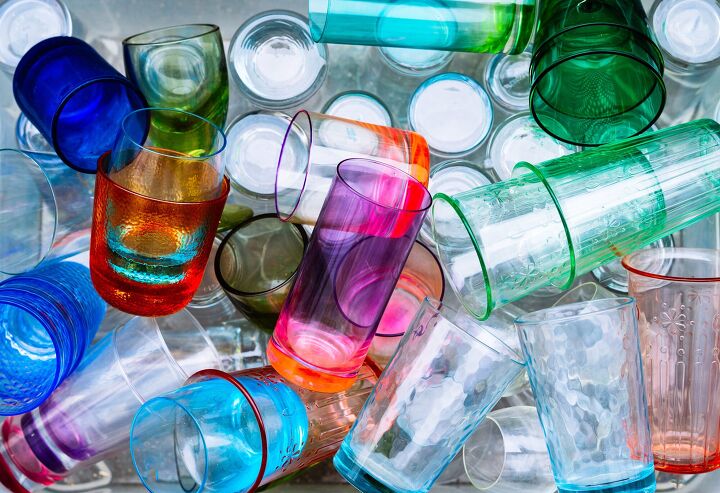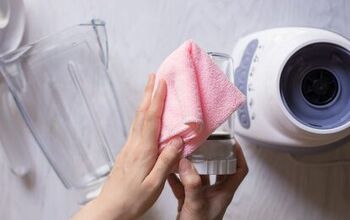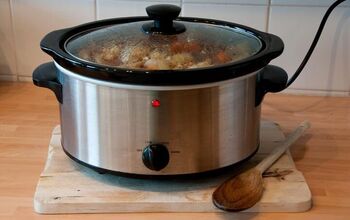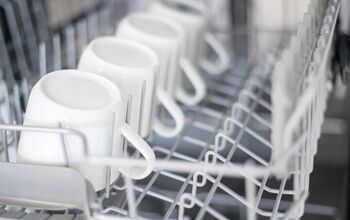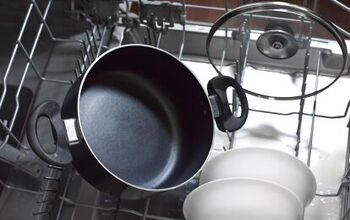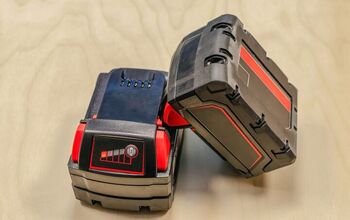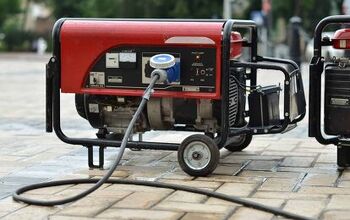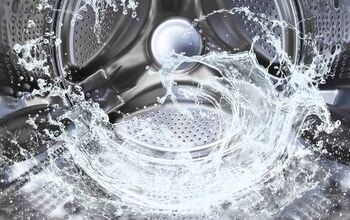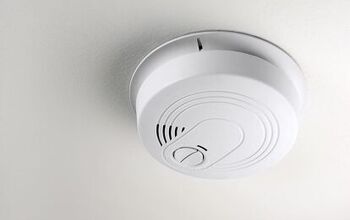Is Acrylic Dishwasher Safe? (Find Out Now!)

If you’re looking for the ideal drinkware for daily use, acrylic glasses are an excellent choice. Not only are they inexpensive, they are also incredibly durable and versatile. This makes them perfect for home, commercial, and even industrial situations. But, how do you clean acrylic glasses? Or, more specifically, “Is acrylic dishwasher safe?”
Acrylic plastic glasses and drinkware are NOT dishwasher safe. While some companies may claim that their acrylic products can be cleaned using the dishwasher, this is simply not true. The combination of high heat and harsh dishwasher cleaning agents will cause acrylic glassware to “craze.” This means that the acrylic will start to develop hairline cracks or fine lines, which ultimately leads to leaking.
Although some may label acrylic plasticware either “hand wash” or “top-rack dishwasher safe,” handwashing is the best method for cleaning acrylic. That said, let’s take a look at this topic in further detail to understand how to properly clean and maintain acrylic drinkware.
Do You Need a Maid Service?
Get free, zero-commitment quotes from pro contractors near you.

What is Acrylic?
Acrylic is a form of molded plastic that has excellent clarity and transparency. As such, it is a practical substitute for glass – especially since it’s shatterproof. Though, acrylic is susceptible to cracking or breaking if it’s dropped. Unlike other types of plastic, acrylic will not turn yellow, and its colors are both sunlight and weather resistant.
One of the major benefits of acrylic glasses is that they are BPA-free, as researchers claim that exposure to Bisphenol-A (BPA) can be harmful to humans. Another advantage to acrylic is that it resists most chemicals found in everyday use. Some of the most well-known brands of acrylic plastic include Lucite and Plexiglass.
Is Acrylic Glassware Safe?
Compared to many other plastic drinkware on the market, acrylic glasses are much safer to use. As previously mentioned, they do not contain nor release BPA. This potentially harmful chemical has been linked to several health concerns such as metabolic dysfunction, thyroid disease, infertility, and other hormone-related issues.
When you choose acrylic glassware over other plastic drinking glass options, you know that you don’t have to worry about BPA and its impact on your health. However, how do you know that you are buying the right plastic products and that they are going to be safe for you and your family? Here are some tips to keep in mind:
- Inspect the product details. To ensure that the drinkware you’re purchasing is acrylic, check the product description. You’ll typically find information like the materials used in construction, specific care instructions, and more.
- Determine the SPI code. In some instances, manufacturers do not indicate the type of plastic that was used to make their products. To be absolutely sure, check the SPI code before purchasing. SPI codes, also known as Resin Identification Codes, are the numbers inside of a triangle on the base of most plasticware. Acrylic is under the number seven category – a classification system that was created by the Society of Plastic Industry to facilitate easy sorting for recycling purposes.
- Look out for the terms “hand wash” or “top-rack dishwasher safe.” Polycarbonate, which contains BPA, is a part of the same plastic group as acrylic. You’ll usually see this product labeled “dishwasher-safe” or “unbreakable.” You also won’t see the “BPA-free” label, indicating that the plastic is polycarbonate instead of acrylic.
Acrylic vs. Polycarbonate
While polycarbonate glasses and cups may look similar to acrylic drinkware, and also fall into the same plastic group, polycarbonate is more heat and impact resistant. It is the same plastic used in the construction of bulletproof glass and eyeglass lenses. As such, polycarbonate glassware is unbreakable and incredibly durable.
Its’ unique properties make polycarbonate the ideal material for beer glasses, wine glasses, tumblers, and pretty much any tableware or drinkware where safety is a concern – like in pubs, schools, and hospitals. Unlike acrylic, polycarbonate is dishwasher safe, crack-resistant, scratch-resistant, and even microwave safe. Though, as previously stated, polycarbonate is not BPA-free.
Acrylic Cleaning and Maintenance Tips
To extend the life of your acrylic glassware, consider the following tips and tricks for cleaning and maintenance:
- Handwash only. Although some manufacturers may claim that their acrylic glassware is top-rack dishwasher safe, it’s highly advised to hand wash only. The high heat and dishwasher agents can cause acrylic to crack and craze. While running acrylic through a dishwasher once may not cause extensive damage, prolonged exposure to heat and harsh cleaning agents will damage your drinkware.
- Never put acrylic in the microwave. Acrylic glassware is not recommended for use in a microwave.
- Avoid harsh chemicals. If you need to remove sticker residue, avoid products like Goo-Gone, turpentine, and nail polish remover. These can damage acrylic. Instead, use a lubricant like WD-40 (or another oil-based brand) or liquid vegetable oils.
Related Questions
Is acrylic breakable?
Although acrylic is technically breakable, it does not shatter the same way that glass does. Its impact strength is substantially higher than glass, meaning it takes some serious force to break an acrylic glass. Unlike glass, acrylic will not break and shatter into small, hazardously sharp pieces.
How do you clean cloudy plastic glasses?
The best way to clean cloudy plastic cups and glasses is to soak them in white vinegar. Fill up your sink or a small bucket with vinegar and submerge the glasses for about five minutes. If the glasses are still cloudy, sprinkle some baking soda onto the glasses, scrub it in, and rinse.
Do You Need a Maid Service?
Get free, zero-commitment quotes from pro contractors near you.

Is Acrylic Dishwasher Safe? Now You Know.
Hand washing acrylic products, whether it’s drinkware or tableware, is the only way to go. Acrylic is NOT dishwasher safe, as the heat and harsh cleaning products used in a dishwasher can cause the plastic to crack and develop hairline cracks (craze). Do not clean with alcohol or glass cleaner, either.
To properly clean acrylic, hand wash in warm water with a mild dish detergent. Only use a soft sponge or cloth, as abrasive tools can scratch the plastic and create traps for grease and dirt to collect. Once you’ve finished hand washing, leave the acrylic product out to air dry completely.

Jessica considers herself a home improvement and design enthusiast. She grew up surrounded by constant home improvement projects and owes most of what she knows to helping her dad renovate her childhood home. Being a Los Angeles resident, Jessica spends a lot of her time looking for her next DIY project and sharing her love for home design.
More by Jessica Stone



